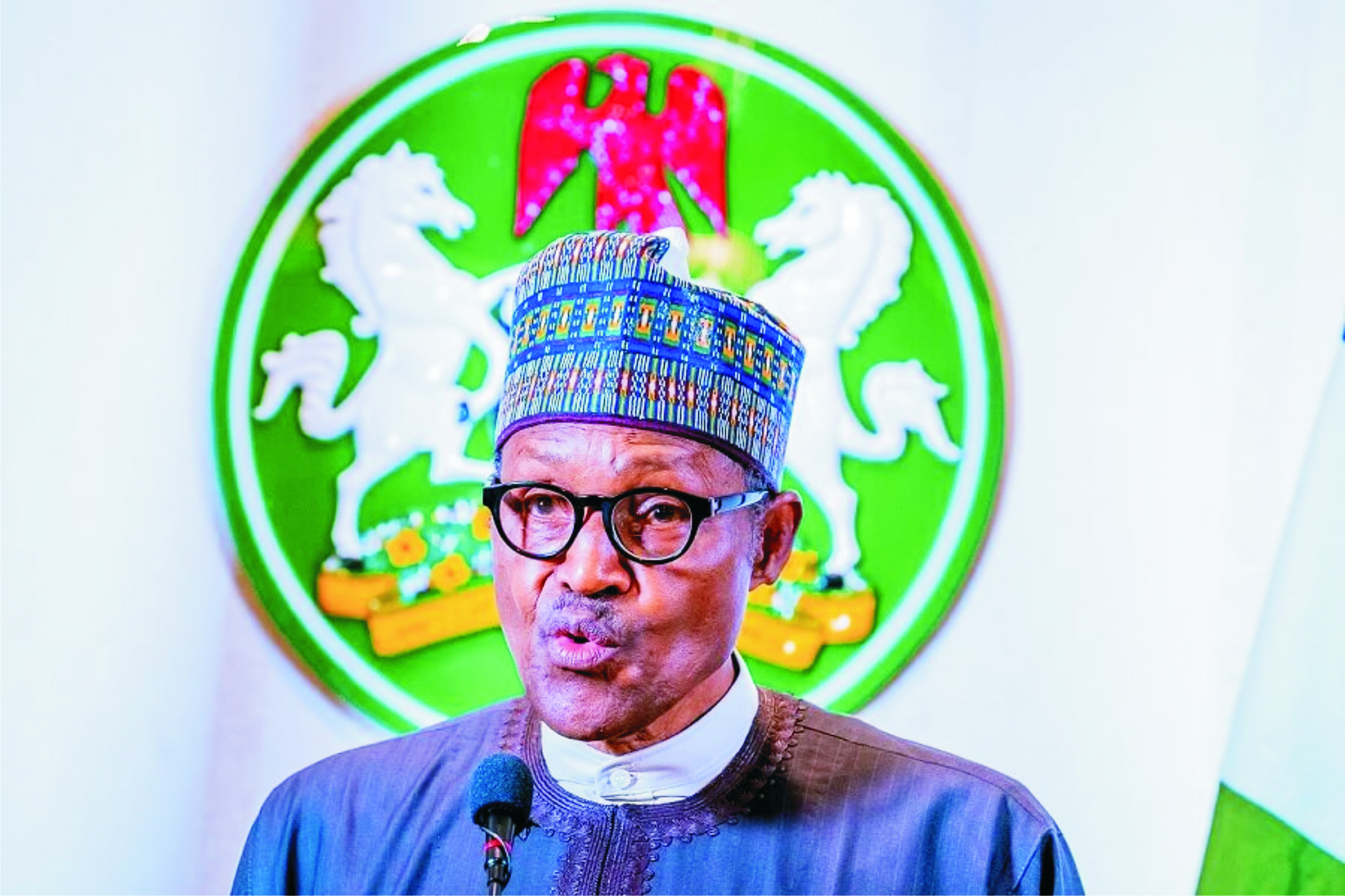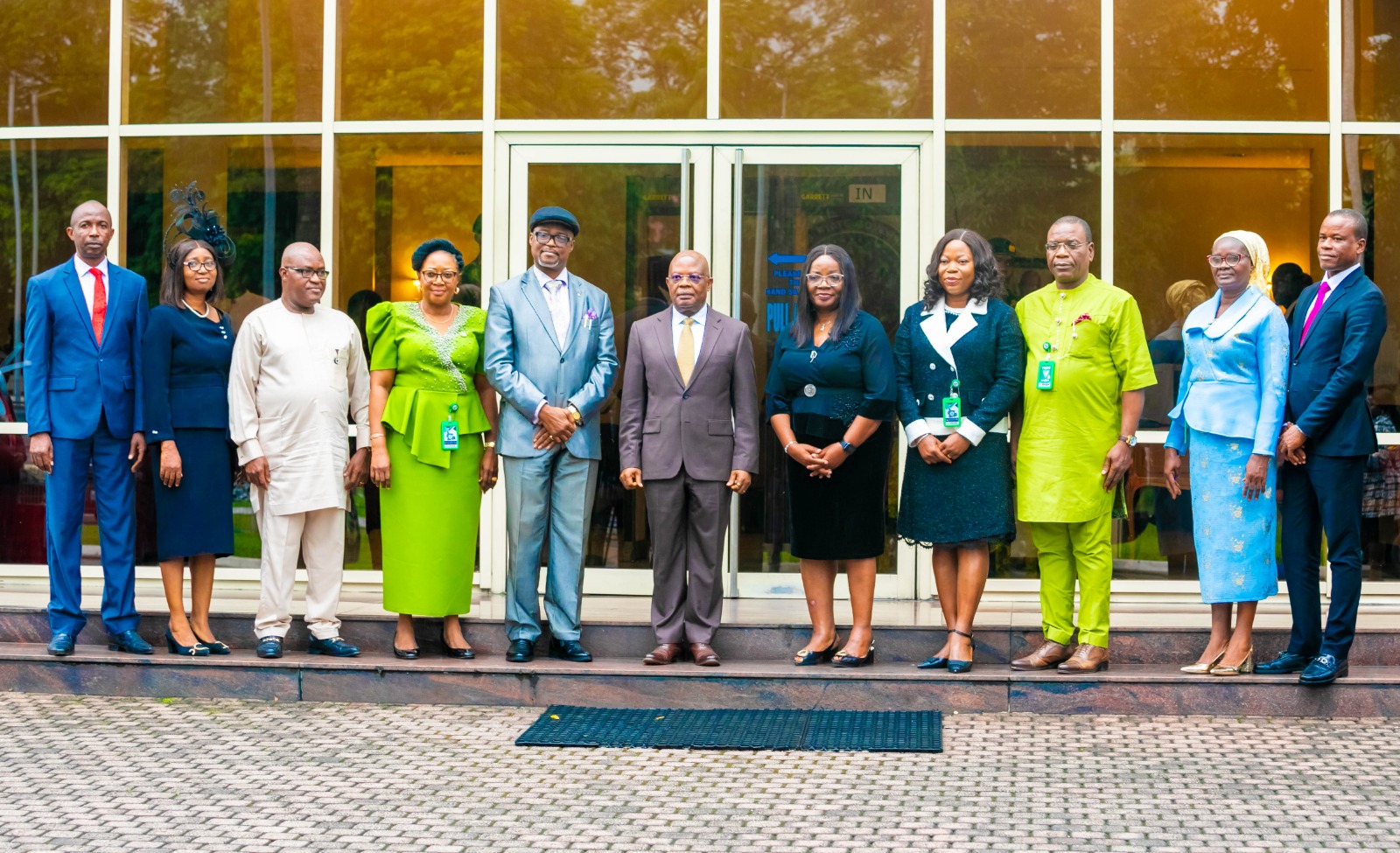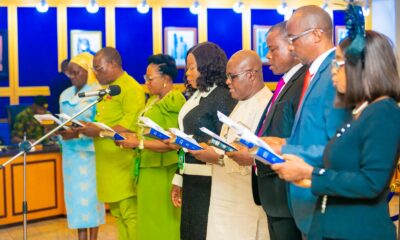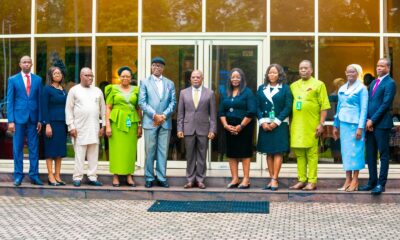Featured
Lockdown: Open Food Reserve Centres Now, PDP Tells Buhari

Federal lawmakers from the opposition Peoples Democratic Party (PDP), in the House of Representatives have urged President Muhammadu Buhari to immediately unlock the national food reserve agency and distribute items to Nigerians across the 774 local government areas.
This, they said, will curb the spate of hunger in the land amid the lockdown order to halt the spread of Coronavirus pandemic in the country.
In a statement issued by the parliamentarians under the umbrella name, “PDP House of Reps Caucus”, yesterday, signed by their leader, Hon. Kingsley Chinda (Rivers State, PDP) and made available to newsmen in Abuja, the members said that available records indicated that compliance to total lockdown has not always been 100 per cent successful if the food question was not addressed.
While commending Buhari for the directive during his state broadcast last Sunday, the caucus, in the statement titled, “COVID-19 Pandemic: A Call for Further and Decentralized Action”, also asked the National Assembly to immediately enact a law for national food prices control.
The caucus said: “The COVID-19 pandemic has certainly taken our country on the emergency course, unexpected and unanticipated at the beginning of the year that strategic legal, policy and legislative responses have dovetailed into measures directed at curtailing or halting the pandemic.
“As members of the PDP Caucus of the House of Representatives, we have consistently called, and we still continue to call, for measured responses that take the poor economic conditions of Nigerians, the rights of citizens, the scaling up of the medicare framework, into account in the management of the COVID-19 pandemic.
“While many governors have stepped away from what Prof Wole Soyinka rightly described this week as an attempt to halt the spread of the pandemic virus by constitutional piracy, we note that the absence of a structured federal response, based on the dictates of the law, may have led them to ramp up measures outside the remit of their constitutional powers.
“The rule of law has now prevailed, and it is in this light we welcome some of the measures outlined in the President’s belated broadcast and in the Regulation (COVID-19 Regulation 2020) made pursuant to Sections 2, 3 and 4 of the Quarantine Act; though the presidential broadcast and Regulation took a long time coming. Well, better late than never. While we find the measures largely satisfying, it is our considered view that the palliative measures outlined in the presidential broadcast and regulation are not far-reaching enough, while some are completely inapplicable.
“Experiences through history have shown that citizens’ rights to movement are often heavily implicated when measures directed at halting the spread of contagious diseases and restoring public safety do not address the food question behind the curtains, worsening food security conditions.
“During the Ebola outbreak a few years ago, citizens of Liberia, Guinea and Sierra Leone openly defied the restrictions that were imposed on movement to limit the transmission of the disease, after staying indoors for a few days in hunger. We must learn quickly from these experiences by ensuring that immediate measures on food security are ramped up.
“One way of doing this is to open up our national food and grain reserves across the country and distribute food to the poorest of the poor in our country at the Local government level. The President should as a matter of utmost urgency issue an Executive Order, pursuant to his powers preserved by Section 5 of the Constitution 1999, directing the Minister of Humanitarian Affairs, National Food Reserve Agency and National Emergency Management Authority to release and manage the distribution of food in our national reserves.
“The Executive Order must set out clear consequences for breach, particularly as they relate to public officials who seize on the times to make brisk businesses and gains from the miseries of the people.
“Other measures such as food prices control should be ramped up; though specific, targeted and temporary legislation on food prices control will be needed for enforcement. This is where the National Assembly comes in – by establishing a framework of teleconferencing and social media communication, where the current lockdown and the medical advisories that bar public gatherings make it impossible for the reconvening of the National Assembly, to deliberate and pass such bills, as the Food Prices Control, COVID-19 Containment, Emergency and Disaster Management, into law.”
Also commending the Speaker of the House, Hon Femi Gbajabiamila and the House for the timely passage of an emergency bill to provide palliatives and the donation of members’ of March and April, 2020 salaries to fight the disease, the opposition lawmakers, however, asked that their deductions be transferred directly to their constituencies, saying they had no confidence in the sharing formula of the government.
Featured
Rivers A Strategic Hub for Nigeria’s Blue Economy -Ibas …Calls For Innovation-Driven Solutions

The Administrator of Rivers State, Vice Admiral (Rtd.) Ibok-Ete Ibas, has emphasized the need for innovation-driven strategies, strategic partnerships, and firm policy implementation to fully harness the vast potential of the blue economy.
Speaking during a courtesy visit by participants of Study Group 7 of the Executive Course 47 from the National Institute for Policy and Strategic Studies (NIPSS) at Government House, Port Harcourt, on Monday, Ibas highlighted the importance of diversifying Nigeria’s economy beyond oil by leveraging maritime resources to create jobs, enhance food security, strengthen climate resilience, and generate sustainable revenue.
The Administrator, according to a statement by his Senior Special Adviser on Media, Hector Igbikiowubo, noted that with coordinated efforts and innovative solutions, the blue economy could serve as a catalyst for inclusive growth, economic stability, and long-term environmental sustainability.
“It is estimated that a fully developed blue economy could generate over $296 million annually for Nigeria, spanning fisheries, shipping and logistics, marine tourism, offshore renewable energy, aquaculture, biotechnology, and coastal infrastructure,” he stated.
“We must transition from extractive practices to regenerative, inclusive, and innovation-driven solutions. This requires political cohesion, intergovernmental collaboration, robust infrastructure, and institutional capacity—all of which must be pursued with urgency and intentionality,” he added.
Ibas urged sub-national governments, particularly coastal states, to domesticate the national blue economy framework and develop tailored strategies that reflect their comparative advantages.
He stressed that such efforts must be guided by disciplined planning, regulation, and investment to maximize the sector’s potential.
Highlighting Rivers State’s pivotal role, the Administrator outlined its strategic advantages as follows:
•Nearly 30% of Nigeria’s total coastline (approximately 853km)
•Over 40% of Nigeria’s crude oil and gas output
•More than 33% of the country’s GDP and foreign exchange earnings
•416 of Nigeria’s 1,201 oil wells, many located in marine environments
•Two of Nigeria’s largest seaports, two oil refineries, and the Nigerian Liquefied Natural Gas (NLNG) terminal in Bonny Island—one of Africa’s most advanced gas facilities
Despite these opportunities, Ibas acknowledged challenges such as pollution, coastal erosion, illegal oil refining, unregulated fishing, inadequate infrastructure, and maritime insecurity.
He reaffirmed his administration’s commitment to institutional reforms, coastal zone management, and inter-agency collaboration to build a governance structure that supports a sustainable blue economy.
“Sustainability must be embedded in our development models from the outset, not as an afterthought. We are actively exploring partnerships in maritime education, aquaculture development, port modernization, and renewable ocean energy. We welcome knowledge-sharing engagements like this to refine our strategies and enhance implementation,” he said.
He urged the NIPSS delegation to ensure their findings translate into actionable recommendations that address the sector’s challenges.
Leader of the delegation, Vice Admiral A.A. Mustapha, explained that the visit aligns with their strategic institutional tour mandate on the 2025 theme: “Blue Economy and Sustainable Development in Nigeria: Issues, Challenges, and Opportunities.”
The group is engaging stakeholders to deepen understanding of policy efforts and institutional roles in advancing sustainable development through the blue economy.
Featured
INEC To Unveil New Party Registration Portal As Applications Hit 129

The Independent National Electoral Commission (INEC) has announced that it has now received a total of 129 applications from associations seeking registration as political parties.
The update was provided during the commission’s regular weekly meeting held in Abuja, yesterday.
According to a statement signed by the National Commissioner and Chairman of the Information and Voter Education Committee, Sam Olumekun, seven new applications were submitted within the past week, adding to the previous number.
“At its regular weekly meeting held today, Thursday 10th July 2025, the commission received a further update on additional requests from associations seeking registration as political parties.
“Since last week, seven more applications have been received, bringing the total number so far to 129. All the requests are being processed,” the commission stated.
The commission revealed the introduction of a new digital platform for political party registration. The platform is part of the Party Financial Reporting and Auditing System and aims to streamline the registration process.
Olumekun disclosed that final testing of the portal would be completed within the next week.
“INEC also plans to release comprehensive guidelines to help associations file their applications using the new system.
“Unlike the manual method used in previous registration, the Commission is introducing a political party registration portal, which is a module in our Party Financial Reporting and Auditing System.
“This will make the process faster and seamless. In the next week, the commission will conclude the final testing of the portal before deployment.
“Thereafter, the next step for associations that meet the requirements to proceed to the application stage will be announced. The commission will also issue guidelines to facilitate the filing of applications using the PFRAS,” the statement added.
In the meantime, the list of new associations that have submitted applications has been made available to the public on INEC’s website and other official platforms.
Featured
Tinubu Signs Four Tax Reform Bills Into Law …Says Nigeria Open For Business

President Bola Tinubu yesterday signed into law four tax reform bills aimed at transforming Nigeria’s fiscal and revenue framework.
The four bills include: the Nigeria Tax Bill, the Nigeria Tax Administration Bill, the Nigeria Revenue Service (Establishment) Bill, and the Joint Revenue Board (Establishment) Bill.
They were passed by the National Assembly after months of consultations with various interest groups and stakeholders.
The ceremony took place at the Presidential Villa, yesterday.
The ceremony was witnessed by the leadership of the National Assembly and some legislators, governors, ministers, and aides of the President.
The presidency had earlier stated that the laws would transform tax administration in the country, increase revenue generation, improve the business environment, and give a boost to domestic and foreign investments.
“When the new tax laws become operational, they are expected to significantly transform tax administration in the country, leading to increased revenue generation, improved business environment, and a boost in domestic and foreign investments,” Special Adviser to the President on Media, Bayo Onanuga said on Wednesday.
Before the signing of the four bills, President Tinubu had earlier yesterday, said the tax reform bills will reset Nigeria’s economic trajectory and simplify its complex fiscal landscape.
Announcing the development via his official X handle, yesterday, the President declared, “In a few hours, I will sign four landmark tax reform bills into law, ushering in a bold new era of economic governance in our country.”
Tinubu made a call to investors and citizens alike, saying, “Let the world know that Nigeria is open for business, and this time, everyone has a fair shot.”
He described the bills as not just technical adjustments but a direct intervention to ease burdens on struggling Nigerians.
“These reforms go beyond streamlining tax codes. They deliver the first major, pro-people tax cuts in a generation, targeted relief for low-income earners, small businesses, and families working hard to make ends meet,” Tinubu wrote.
According to the President, “They will unify our fragmented tax system, eliminate wasteful duplications, cut red tape, restore investor confidence, and entrench transparency and coordination at every level.”
He added that the long-standing burden of Nigeria’s tax structure had unfairly weighed down the vulnerable while enabling inefficiency.
The tax reforms, first introduced in October 2024, were part of Tinubu’s post-subsidy-removal recovery plan, aimed at expanding revenue without stifling productivity.
However, the bills faced turbulence at the National Assembly and amongst some state governors who rejected its passing in 2024.
At the NASS, the bills sparked heated debate, particularly around the revenue-sharing structure, which governors from the North opposed.
They warned that a shift toward derivation-based allocations, especially with VAT, could tilt fiscal balance in favour of southern states with stronger consumption bases.
After prolonged dialogue, the VAT rate remained at 7.5 per cent, and a new exemption was introduced to shield minimum wage earners from personal income tax.
By May 2025, the National Assembly passed the harmonised versions with broad support, driven in part by pressure from economic stakeholders and international observers who welcomed the clarity and efficiency the reforms promised.
In his tweet, Tinubu stressed that this is just the beginning of Nigeria’s tax evolution.
“We are laying the foundation for a tax regime that is fair, transparent, and fit for a modern, ambitious Nigeria.
“A tax regime that rewards enterprise, protects the vulnerable, and mobilises revenue without punishing productivity,” he stated.
He further acknowledged the contributions of the Presidential Fiscal Policy and Tax Reform Committee, the National Assembly, and Nigeria’s subnational governments.
The President added, “We are not just signing tax bills but rewriting the social contract.
“We are not there yet, but we are firmly on the road.”
-
Niger Delta22 hours ago
Bishop Mocks Fake Prophecy Seekers … As Priests Relive Challenges At Ordination Ceremony
-
Rivers1 day ago
Macobarb CEO Cries Out, Says No Indigenous Contractor Can Win Case Against NLNG Or Oil Majors in Nigerian Courts …As Justice Nwogu Throws Out Macobarb’s N5.74bn Claim
-
Rivers20 hours ago
Motor Spare Parts, Industrial Generators Dealers’ Union Swears Gets New Chairman in Port Harcourt
-
News22 hours ago
NUP Denies Planned Protest Over N32,000 Pension Increment
-

 Women19 hours ago
Women19 hours agoWhat To Know About Fufu, Loi Loi
-
Rivers22 hours ago
ASALGA Community Debunks Reports On Ownership Of Land Its Settlements
-
Business1 day ago
2027: Group Vows To Prevail On Diri To Dump PDP For APC
-
City Crime20 hours ago
RSG Tasks Federal Government On Maternal Deaths








